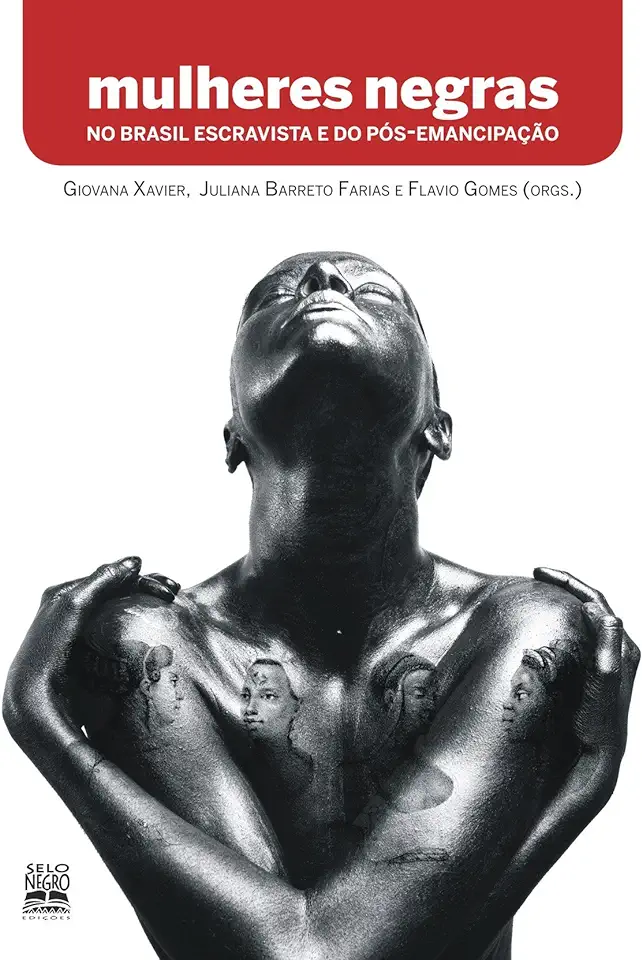
BLACK WOMEN IN SLAVE AND POST-EMANCIPATION BRAZIL - FLÁVIO; GIOVANA; JULIANA
Black Women in Slave and Post-Emancipation Brazil
An Introduction
In this groundbreaking book, Flávio dos Santos Gomes, Giovanna Baptista, and Juliana Barreto explore the lives of black women in Brazil during the periods of slavery and post-emancipation. Through a comprehensive analysis of historical documents, literature, and other sources, the authors provide a nuanced and insightful account of the experiences of these women, shedding light on their struggles, triumphs, and contributions to Brazilian society.
The Peculiarities of Slavery in Brazil
Brazil was the last country in the Americas to abolish slavery, and its unique system of slavery had a profound impact on the lives of black women. Unlike in other slave societies, where women were primarily used for reproductive purposes, black women in Brazil were forced to perform a wide range of tasks, including field labor, domestic work, and sexual exploitation. This dual burden of labor and sexual violence had a devastating impact on their physical and mental health, as well as their ability to form and maintain relationships.
Resistance and Resilience
Despite the oppressive conditions they faced, black women in Brazil displayed remarkable resilience and resistance. They formed quilombos, or maroon communities, where they could escape the brutality of slavery and live in freedom. They also engaged in a variety of other forms of resistance, such as work slowdowns, sabotage, and armed rebellion. These acts of resistance not only demonstrated their courage and determination, but also contributed to the eventual abolition of slavery in Brazil.
The Challenges of Post-Emancipation
After the abolition of slavery in 1888, black women in Brazil continued to face significant challenges. They were denied access to education, employment, and other opportunities, and they were subjected to ongoing discrimination and violence. Despite these obstacles, black women played a vital role in the development of Brazilian society. They formed mutual aid societies, founded schools and churches, and participated in political activism. Their contributions helped to shape the modern Brazilian identity and laid the foundation for the ongoing struggle for racial equality.
A Must-Read for Anyone Interested in Brazilian History and Women's Studies
Black Women in Slave and Post-Emancipation Brazil is a powerful and moving account of the lives of black women in Brazil. It is a must-read for anyone interested in Brazilian history, women's studies, and the ongoing fight for racial justice.
Praise for Black Women in Slave and Post-Emancipation Brazil
"A groundbreaking work that sheds new light on the experiences of black women in Brazil. Gomes, Baptista, and Barreto have produced a powerful and important book that is essential reading for anyone interested in Brazilian history and women's studies."
— Angela Davis, Distinguished Professor Emerita, University of California, Santa Cruz
"A beautifully written and deeply researched book that tells the stories of black women in Brazil with compassion and insight. Gomes, Baptista, and Barreto have made a major contribution to the field of Brazilian studies and to our understanding of the history of slavery and its aftermath."
— Edward E. Baptist, Professor of History, Cornell University
"A powerful and moving account of the lives of black women in Brazil. Gomes, Baptista, and Barreto have written a book that is both scholarly and accessible, and that will appeal to a wide range of readers. This is a must-read for anyone interested in Brazilian history, women's studies, and the ongoing fight for racial justice."
— Robin D. G. Kelley, Professor of History, University of California, Los Angeles
Enjoyed the summary? Discover all the details and take your reading to the next level — [click here to view the book on Amazon!]